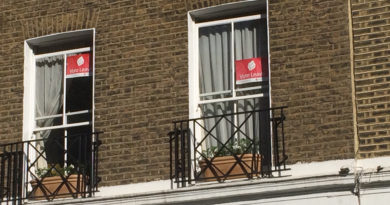A quarter of Spanish researchers in UK consider leaving
Over a quarter of Spanish researchers in the UK (26%) are considering leaving within the next year, a survey by the Spanish academic society in the country shows.
The figure emerges from the latest survey carried out by Spanish Researchers in the UK (SRUK/CERU), which has been polling its members since 2017. Brexit still weighs heavily on the life – and decisions about the future – of Spanish researchers. Among those intending to leave, 74% fear a “talent brain” due to the UK withdrawal from the EU that could impact the research environment.
More than half of respondents (52%) planning to leave said they would return to Spain, while 30% would go to another EU country and 17% would move outside the EU.
A small proportion of participants in the survey had already left and 90% said a return to the UK would be “unlikely or very unlikely,” according to the research.
‘Considerable impact’
A large majority of respondents (80%) reported feeling affected by Brexit. The most cited reasons were the economic situation, changes in the rights of EU residents in the UK, bureaucracy, the cost of living, the ability to hire team members or host international students, as well as the increase in academic fees.
Since Brexit, EU students have to pay international fees to enroll in UK universities, instead of the around £9,000 applicable to local students.
Other difficulties mentioned by respondents were the costs and the bureaucracy of the visa process, and restrictions for partners and family members.
Spanish researchers also found the UK less attractive compared to when they first arrived. Those who have been longer in the country were more likely to say they now find it less appealing.
The most cited reason (80%) was the immigration policy, followed by the political and economic situation.
Immigration measures that cause greatest concern are the increase of the health surcharge, the fee foreign residents have to pay to access public healthcare that recently jumped from £624 to £1,035, and the minimum salary for the skilled worker visa, which has risen from £26,200 to £38,700.
The survey was carried out in April, after the UK re-joined the EU’s research programme Horizon. Nevertheless, Spanish researchers still think that the UK research ecosystem is less attractive than in the past.
In this case the main reasons are economic conditions, career progression opportunities and access to research funding, including retaining project leadership. Some participants also noted more discrimination and racism post-Brexit.
The survey asked participants if they could identify a positive outcome of Brexit. Three quarters of respondents (76%) could not mention any. Those who identified positive results mentioned more flexibility in legislation, for example in the areas of agriculture, genome editing, genetically modified crops and biomedical products. Others highlighted less competition in finding jobs.
SRUK, which has almost 800 members, is among the organisations that have set up CONNECTS-UK, a professional network of EU academics in the country. The project aims to “bridge the gap created by Brexit” by promoting EU-UK collaboration in the sciences.
Data published by Universities UK, the body representing the country’s higher education sector, shows that of the 233,930 people employed in UK universities in 2021-2022, 16% of academic staff and 8% of non-academic staff had an EU nationality.
Claudia Delpero © Europe Street News
Photo by José-Joaquín Blasco Muñoz, Luca Cabrini, European Union, 2018
Europe Street News is a news service on the European Union and citizens’ rights. We are fully independent and we are committed to providing factual, accurate and reliable information. As citizens’ rights are at the core of democracy, our website and newsletter are free to read, so we welcome contributions to support our work. Thank you!




